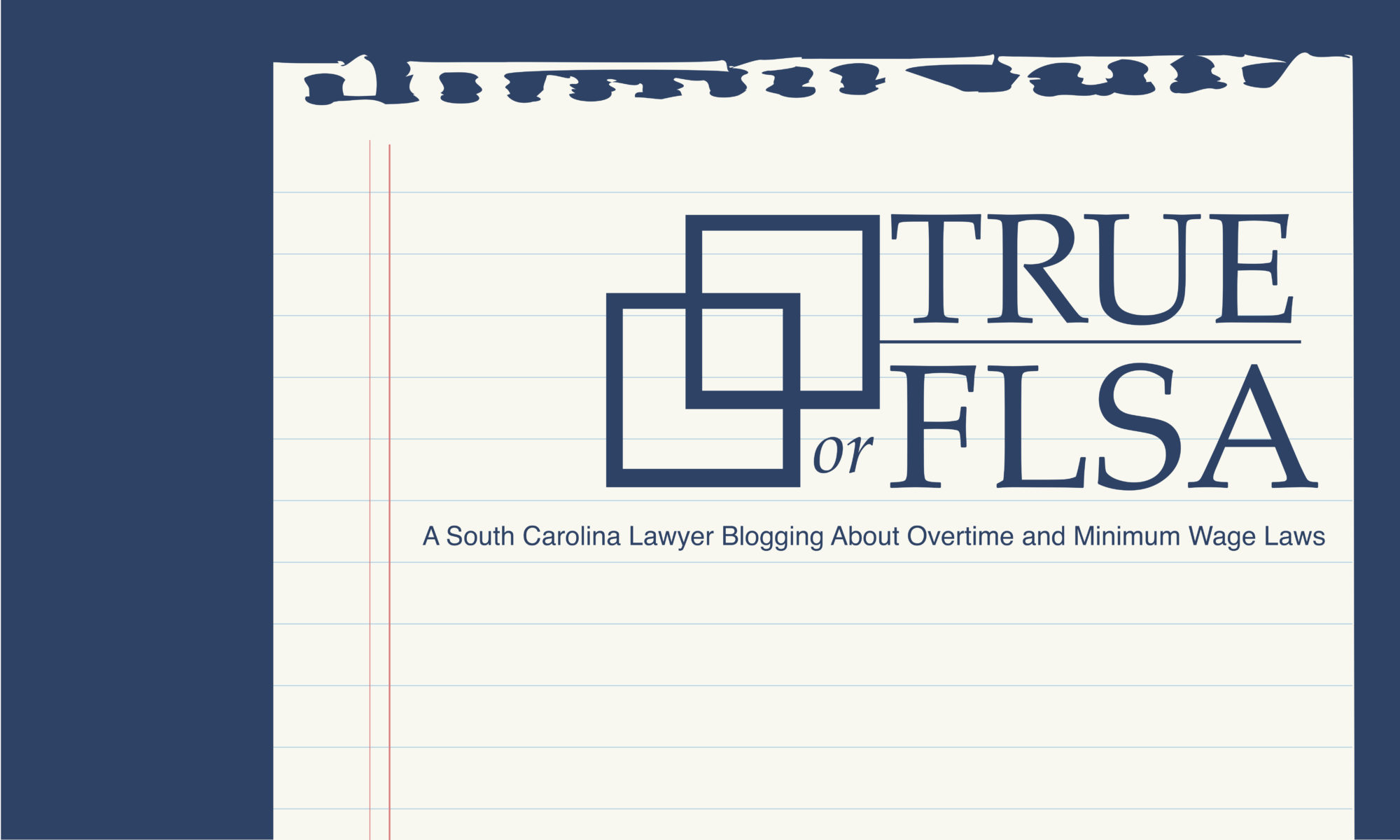As I’ve written about previously, an employee is entitled to overtime pay unless the employee is meeting all of the Fair Labor Standard Act’s (FLSA) requirements. First, does the employee meet the salary threshold under the FLSA by making at least $455 a week in salary (called the “salary test”)? Second, is the employee performing the necessary duties to meet the “duties test,” such as supervising two or more employees or exercising significant discretion in an office setting? The salary threshold test sets the floor on the minimum amount of money that an employee must be paid before the FLSA permits an employer to claim an exemption and therefore NOT have to pay that employee overtime.
What is the current Salary Threshold under the FLSA?
Currently, the DOL has set that amount at $455 a week (about $24,000 a year). That’s a fairly low figure and hasn’t been raised in a number of years (and it’s not tied to inflation at all currently). But the U.S. Department of Labor recently announced that it plans to raise the salary threshold up to $35,000 a year. (Back in 2016, the Obama Administration tried to raise the threshold to about $47,000 a year, but that proposed rule change was put on hold by a federal judge.) The DOL will unveil the proposed rule at some point in the near future.
When will the DOL implement the new Salary Threshold?
The salary change won’t go into effect immediately. The DOL must first permit the public to comment on the proposed change and provide feedback. Management-side lawyers and lawyers representing the interest of employees will both have much to say on the new regulation. And there’s always the chance that businesses sue the DOL again to prevent implementation of the new rule.
Are you, as a South Carolina employee, meeting the current salary threshold?
For South Carolina employees, the question still remains: Have you been properly classified under the FLSA? If you are not getting overtime pay even if you are working more than 40 hours a week, then the questions to ask are whether you are meeting the current salary threshold of $455 a week and whether you are performing the actual duties of a salaried exempt employee (executive duties, administrative duties, or professional duties, primarily). If you don’t know, contact an experienced FLSA overtime attorney for a consultation today. And keep an eye on this blog for updates on the new DOL regulation as they develop.


 The determination of whether an employee has been misclassified is extremely fact specific. If you believe you’ve been a victim of overtime wage theft, you should speak with an employment attorney immediately.
The determination of whether an employee has been misclassified is extremely fact specific. If you believe you’ve been a victim of overtime wage theft, you should speak with an employment attorney immediately.